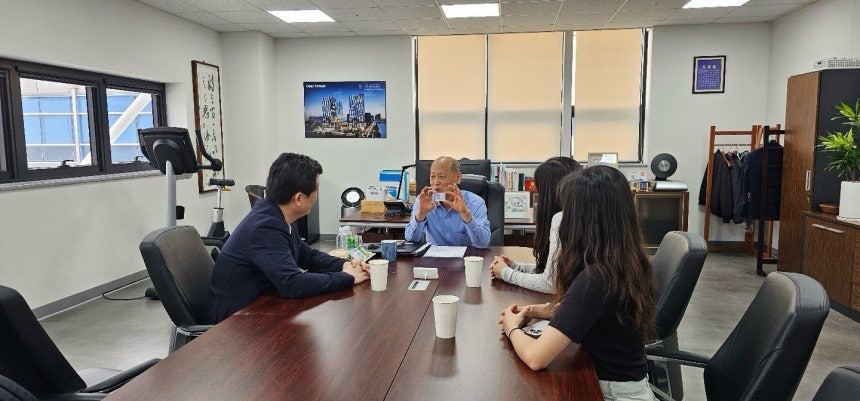
On September 8, 2025, Korea Culture Foundation and Cyber Diplomacy Organization VANK held a joint seminar under the theme “The Korean Wave in a Flourishing Era: The Path Forward” at the Hanacobi conference room in Pyeongtaek, Gyeonggi Province. The event focused on the sustainability of Hallyu and strategic approaches at the national level, drawing participants into in-depth discussions.
The seminar was based on the idea that the Korean Wave—now spanning K-pop, dramas, games, and webtoons—should move beyond cultural consumption and instead serve as a springboard for promoting the essential values of Korean culture and national identity. With Netflix’s recent release of K-pop Demon Hunters making waves in the global market, the gathering also served as a chance to reflect on Hallyu’s future direction.
Kim Joon-il, Chair of Korea Culture Foundation, stressed the importance of building stronger connections. “In the past, NGOs, foundations, Korean language schools, and government ministries have worked separately to spread Hallyu,” he said. “Now we need a form of ‘spiritual networking’ that brings them together. For Hallyu’s continued growth, voluntary participation from the private sector must be matched with coordinated government support across ministries.” He added that Hallyu’s growth “is not just the task of the Ministry of Culture, Sports and Tourism or the Ministry of Foreign Affairs. It is a national agenda that requires the combined effort of every government department.”
Kim also called for a new perspective on corporate social responsibility (CSR). “Many companies have supported schools and welfare projects abroad, but few efforts have been directly linked to Korean culture,” he said. “Going forward, CSR activities should incorporate Korean language education, traditional culture experiences, and Hallyu content such as K-pop, dramas, and games to raise global awareness of Korea.” He emphasized that “what matters more than visible buildings is the unseen spirit” and urged closer cooperation among NGOs, government, and businesses through Hallyu.
Citing K-pop Demon Hunters as an example, Kim described the production as “a case of reinterpreting Korean culture in a new way.” He argued that the project should not be consumed merely as trendy entertainment but developed as a global initiative that conveys the philosophy and values of Korean culture, with the joint efforts of government, businesses, and NGOs.
Kim further highlighted the spiritual themes reflected in the production, noting that such values are deeply rooted in Korea’s history. He said the foundation of Hallyu lies in the philosophy of Dangun, Korea’s legendary founder, expressed in the ideal of “Hongik Ingan, benefiting humanity.” He explained this as a cultural philosophy where “spirit awakens, soul continues, and light shines,” connecting Korea with the world. “Hallyu should be more than a passing trend,” he concluded. “It must be a ‘spiritual and cultural connection’ that helps shape a new world order.”
He also addressed the role of overseas Koreans, urging the 7.5 million Korean diaspora worldwide to transform the hardships and alienation they experience abroad into cultural pride through Hallyu.
Closing the seminar, VANK head Park Ki-tae pointed out the limits of current Hallyu policies. “So far, the Ministry of Culture, Sports and Tourism and the Ministry of Foreign Affairs have led Hallyu efforts. But this structure alone cannot meet the explosive global demand and expansion,” he said. “What we need now is cross-government cooperation that goes beyond the cultural content industry, encompassing transportation, construction, industry, and the environment.” He proposed the launch of a presidential-level “National Korean Culture Integration Committee” to coordinate such efforts. Park added, “By linking Hallyu with policies on education, industry, environment, and urban development, Korea can position its brand as a core pillar of national competitiveness, going beyond cultural exports.”
Like Kim, Park also cited the global success of K-pop Demon Hunters. He described it as “not just commercial content but a new form of Korean culture that combines Korean storytelling and sentiment.” He stressed that such works should not be dismissed as fleeting trends but must be developed into concrete policies and projects through cooperation between government, businesses, and NGOs.
Following the seminar, Korea Culture Foundation and VANK outlined four key action items: building cultural networks through public-private partnerships, proposing a government-wide “National Korean Culture Integration Committee,” linking CSR with Hallyu, and strengthening cultural connections with overseas Koreans.
VANK researcher Kwon So-young said the two organizations will continue to develop concrete policy proposals with the public through the national platform Woollim, while creating a nationwide cooperation model involving NGOs, government, and businesses. “This seminar marks the first step in connecting previously separate Hallyu promotion efforts and designing a collaborative structure with real execution power,” she said. “Policies and projects built with citizens will be the driving force that determines Hallyu’s sustainability and influence.”
VANK researcher Koo Seung-hyun emphasized the need for broader participation. “Companies and global NGOs must move beyond one-off activities to expand Hallyu into concrete global projects and create sustainable cultural exchanges with people around the world,” she said. “Works like K-pop Demon Hunters are not just entertainment, but cultural catalysts carrying the philosophy of Korea that can awaken the world. When companies and NGOs strategically connect such cultural energy, Hallyu can grow from a trend into a lasting global network that unites hearts and minds.”